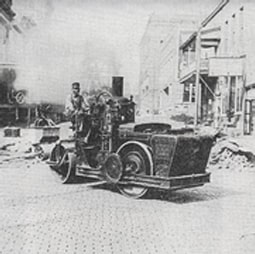
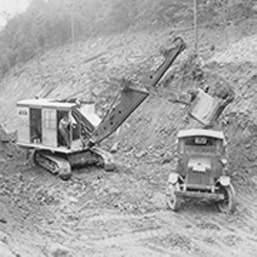
After World War II, Colonel James F. Allen and his wife, Sara, incorporated J.F. Allen Company on March 21, 1946. The company began by purchasing two military surplus bulldozers. Mrs. Allen was Corporate Secretary, William G. (Tad) Johnson was Vice-President, and Mr. Allen was President/Treasurer. The company first strip-mined coal until it had enough working capital to bid on highway contracts.

Barbour Co., US 250 – J.F. Allen Company is awarded its first contract exceeding $1 million (approximately $8 million in 2016 dollars). US 250 was reconstructed with two and three lanes north of Belington, WV.

J.F. Allen Company bulldozer operator, John Mitchell, “breaks ground” for the first I-79 project in West Virginia with Governor Wally Barron at the controls and US Senator Jennings Randolph on board. US Commerce Secretary, Luther Hodges, was also at the ceremony representing President John F. Kennedy. The I-79 project replaced part of the planned US 250 Fairmont bypass and was the company’s first Interstate project.

J.F. Allen Company expands into new market areas and builds three portions of Interstate 81 in northern Virginia (Clearbrook to WV state line, Strasburg I/C with US 11, Woodstock area).
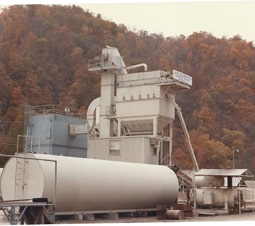
John C. Allen succeeds his father as President of J.F. Allen Company leading the company’s continued growth. The company acquires the asphalt plant and paving equipment of Elkins Asphalt Co., and begins crushing sandstone with a portable plant near Weston. John’s brother, David Allen, who joined the company several years prior, begins development of a limestone quarry and crushing plant at Aggregates, WV (Elkins).

Under its first contract with the US Army Corp of Engineers, J.F. Allen Company relocates two miles of US 19 and builds campground facilities, boat ramps, and bathhouses.
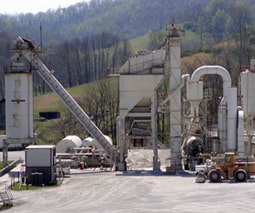
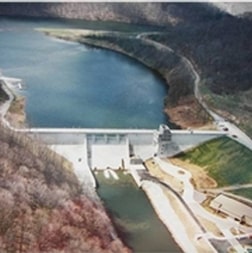
J.F. Allen Company (with joint venture partner Wiley N. Jackson Company of Roanoke, VA) builds Stonewall Jackson Dam for the US Army Corp of Engineers. All of the aggregates for the 107,000 CY of concrete needed to build the dam were produced by J. F. Allen Co.’s quarry at Aggregates, WV.
J.F. Allen Company relocates 20 miles of highway in the dam basin and builds various recreation facilities.
After successful completion of the project, J.F. Allen Company was recognized by Engineering News Record as one of the “Top 100 Contractors” in North America.

Under the U.S. Department of Interior’s Abandoned Mine Reclamation Program, J.F. Allen Company wins a top national award for reclaiming a site along WV 76 north of Philippi, WV. The project was administered by the West Virginia Department of Natural Resources.
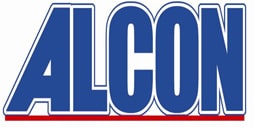
J.F. Allen Company expands into the manufacture of concrete block and ready-mixed concrete with the acquisition of Alcon, Inc, a leading producer in north central WV.

To serve the expanding Clarksburg and Bridgeport markets, J.F Allen Company opens its Saltwell asphalt plant off Exit 125, Interstate 79.

Mashey Gap quarry, located east of Elkins, begins operation. This new operation helps meet the growing demand for limestone aggregates.

J.F. Allen Company begins construction of the Moorefield to Forman section of Appalachian Corridor H ($50M contract).

J.F. Allen Company completes a Marcellus Shale deep well, drilling pad site in Doddridge County, WV. The natural gas industry has become an important new market for the company.
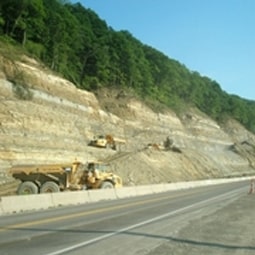
J.F. Allen Company wins the first design/build project administered by the WV Department of Highways. The project’s scope includes engineering design and the widening of WV 2 in Moundsville from two to four lanes.

J.F. Allen Company is awarded the remaining 9.9 miles portion of the Davis to Bismarck section of Appalachian Corridor H ($55M).

In partnership with a major de-icing salt supplier, J.F. Allen Company builds a covered storage facility at its Aggregates plant to provide de-icing salt for over 16 counties and 30 Department of Highway locations. The locally-owned Durbin & Greenbrier Valley Railroad delivers the de-icing salt. This arrangement annually saves state and local governments millions of dollars on freight, minimizes truck traffic in the region, and helps to improve driving safety through the winter months.

